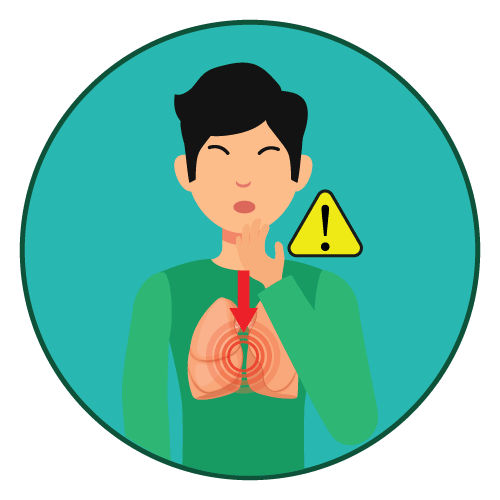| Name | Respiratory Depression |

Respiratory Depression
What is Respiratory Depression?
Respiratory depression is a condition characterized by slow or shallow breathing, which can lead to hypoxia (reduced oxygen levels in the body) and decreased levels of consciousness.
What are the Causes?
Respiratory depression can be caused by a variety of factors, including
- drug interactions
- use of certain medications such as opioids
- decreased lung function
- neurological conditions
- underlying medical conditions such as heart failure or sleep apnea.
What are the Symptoms?
The symptoms of respiratory depression include
- slow or shallow breathing
- decreased level of consciousness
- confusion
- blue or gray skin coloration (cyanosis)
- decreased responsiveness.
Treatment: Treatment for respiratory depression involves removing the underlying cause and providing supportive measures, such as supplemental oxygen or mechanical ventilation. In severe cases, naloxone may be used as an antidote to reverse the effects of opioids.
Risk Factors: Risk factors for respiratory depression include
- the use of certain medications, such as opioids and sedatives
- advanced age
- underlying medical conditions
- alcohol or substance abuse.
Prevention: To prevent respiratory depression, it is recommended to use medications only as prescribed, be aware of potential drug interactions, and seek prompt medical attention if symptoms arise. Individuals with underlying medical conditions should also be carefully monitored.
Note: If you suspect you or someone else is experiencing respiratory depression, seek medical attention immediately as it can be a life-threatening condition.
 Bangla
Bangla English
English